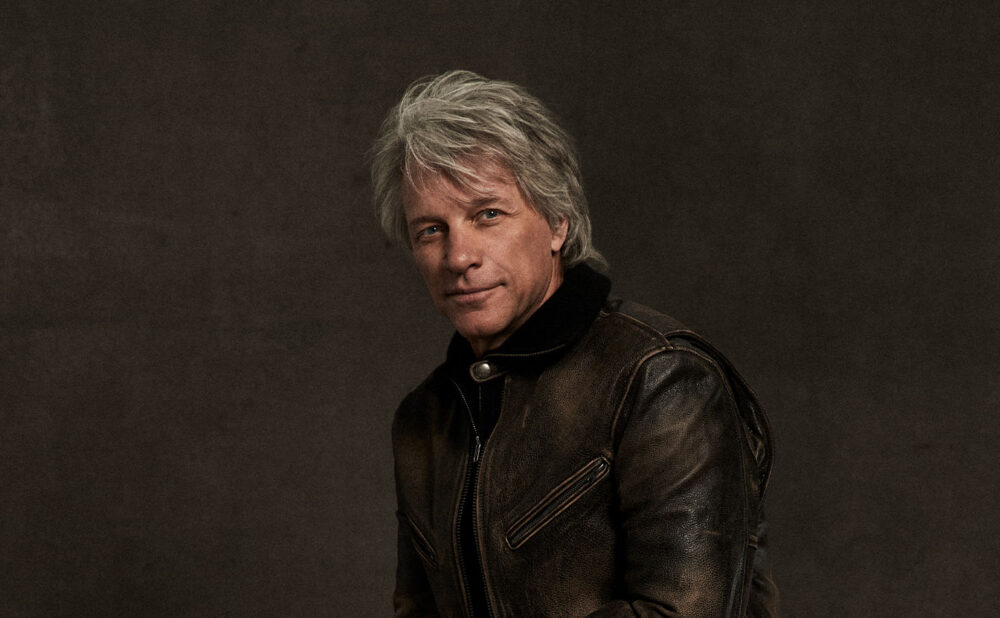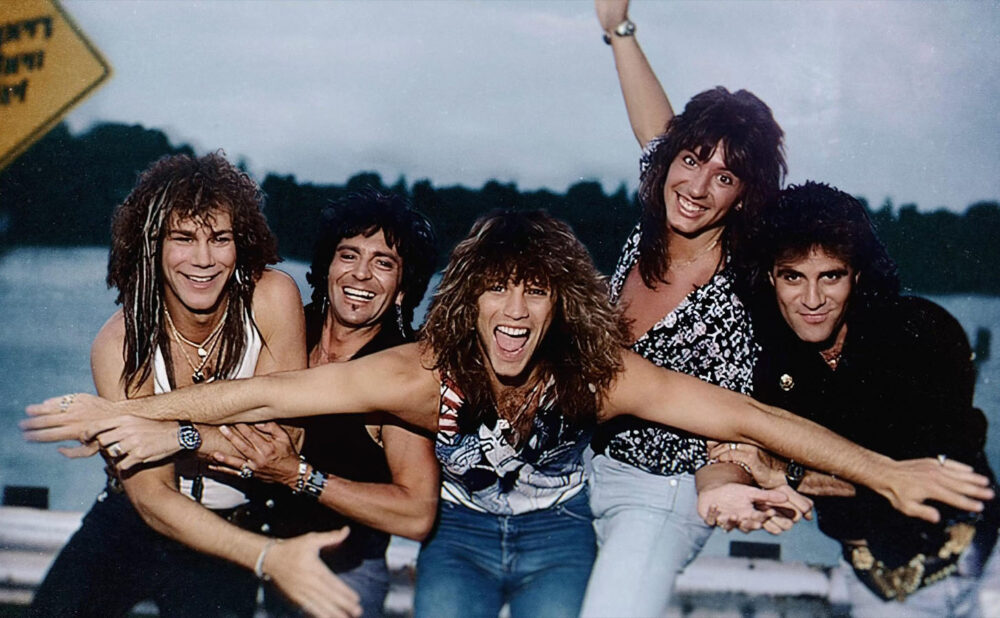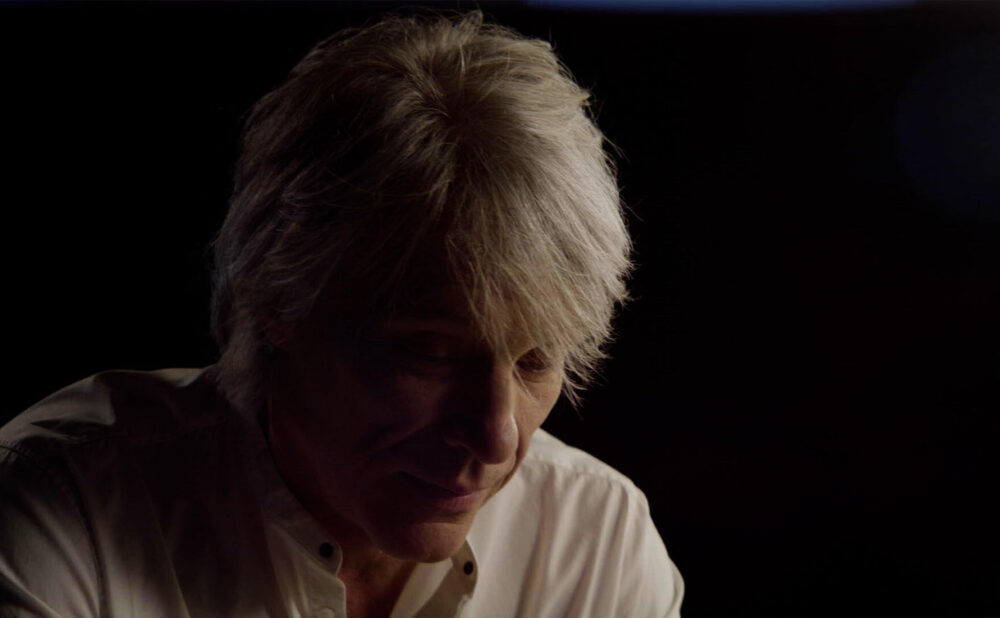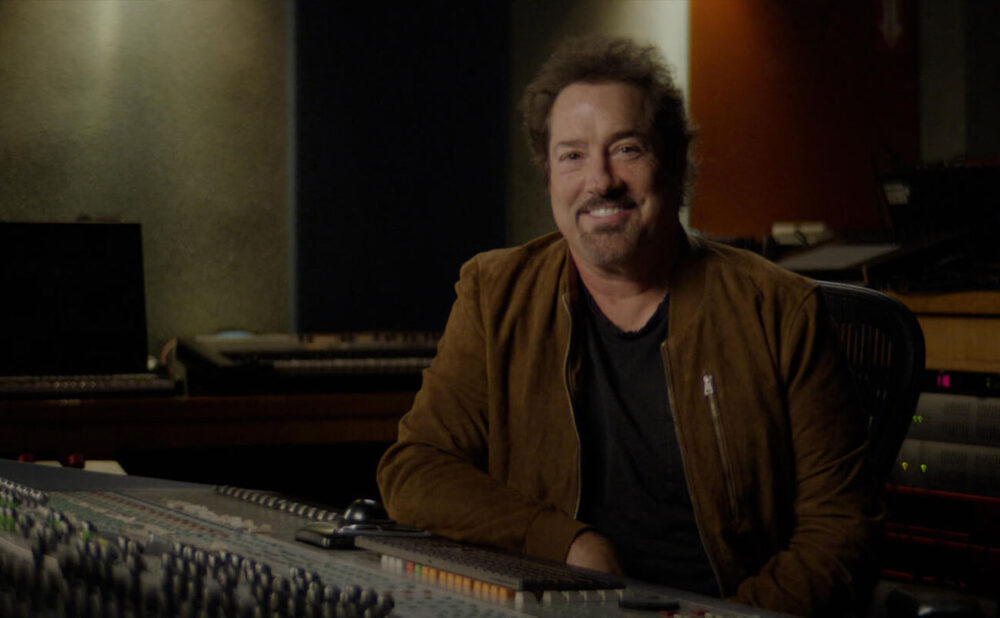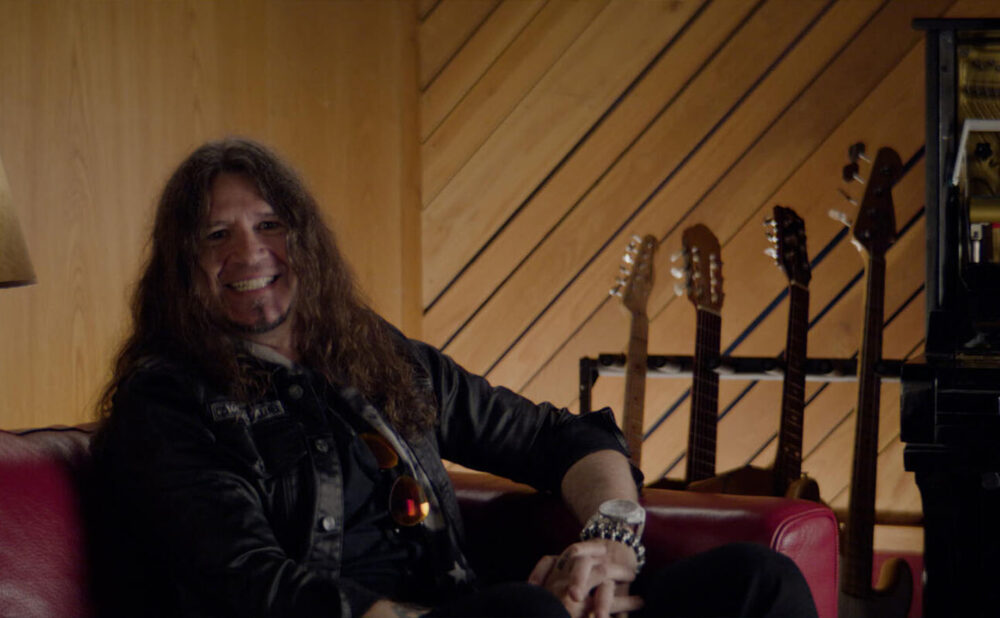Jon Bon Jovi determined to tell the truth about one of rock’s biggest bands
New Bon Jovi documentary series an unflinching look at of 40 years of arena rock
Thank You, Goodnight: The Bon Jovi Story
Where: Disney+
What: Miniseries, 4 episodes, 55 mins.
When: Thurs., April 25, 1 episode, Fri., April 26, remaining episodes
Genre: Documentary
Rating: NNNN (out of 5)
Why you should watch: A surprisingly honest and fully engaging look inside 40 years of the Bon Jovi monsters-of-rock machine. A first-rate rockumentary that reveals an engaging, hardworking and super-focused Jon Bon Jovi.
NEXT: New album, Forever, out June 7.
FORTY YEARS into leading one of the most successful arena rock bands in history, Jon Bon Jovi tells me his biggest thrill remains songwriting.
We’re Zooming in advance of this week’s release of the excellent four-part rockumentary on his band, Thank You, Goodnight: The Bon Jovi Story, a surprisingly honest and totally compelling look at one of the biggest bands ever to come out of the States.
Athletic and youthful, Bon Jovi shows no signs of the health challenges that have put future touring plans in jeopardy, the singer still recovering from throat surgery last year.
“Writing a song for me, that’s the greatest pleasure I get in the process,” Bon Jovi tells me. “And then, the desire to record it, to see if what is in the notebook is legit. And then, ultimately, to share it with an audience.”
In the film and in person, Bon Jovi comes across as driven and focused, clear-eyed and determined. I’m introduced as “Michael,” which the personable Bon Jovi immediately shortens to the more familiar “Mike.”
“I never intended to have a problem let alone a big surgery like this,” says Bon Jovi of treatment intended to restore some of the singer’s diminished vocal range caused by a chronic throat issue.
“Now it’s that phrase, ‘Let go and let God’ — it’s just out of my hands. Given the opportunity, I’d like to tour. But, unlike a lot of journeymen that I’ve met over the years, it’s not my motivating factor. I really don’t live for the applause. I don’t live for room service and a suitcase and a hotel room; I dread that idea. But given the opportunity to go out there and support the new album, I’d like to.”
And there is a new album, Forever, out June 7 and, as shown in the miniseries, which depicts Bon Jovi’s surgery recovery, he is being characteristically methodical and focused on getting his voice back where he wants it. The series shows him systematically working out, both his body and his voice, determined to keep each as fit and strong as possible.
This workmanlike approach is consistent with the image of Bon Jovi that emerges in the series, a young kid in New Jersey determined to make it as a musician and prepared to put in the work. In some ways, the show can function as a “How To” on getting into rock and roll.
“I wouldn’t mind if that next-generation boy or girl who chooses to get into the business sees what it takes,” says Bon Jovi. “It’s not about singing shows on television, it’s about writing a song and not only writing the song but writing it over and over and over again”.
Growing up in a working-class family in New Jersey, Bon Jovi was hustling for a career in music from his mid-teens.
“I had a single-minded focus as a kid,” says Bon Jovi, “and I found I didn’t think of it as work. I found it to be incredibly fun and exciting and it gave me a reason to want to get up. Then, I would call it seizing the day, and I would not have had it any other way — that was, to me, fun.
“Maybe a lot of it had to do with where we were brought up, how we were brought up, that those impossibilities seemed possible.”
Bon Jovi explains a lower drinking age in New Jersey back in his teen years was key to his ability to start learning his craft by playing in professional bars.
“The drinking age in New Jersey in 1979, ’80, ’81, ’82 was still 18 years old. So, you could be 16 and slip into a bar and cut your teeth performing in front of a real crowd. That wasn’t a high school dance. So, you’re thrust into the major leagues, like it or not, by playing in these bars because these were recording acts that you were opening for or witnessing. You were there with some of the now-known greatest songwriters in rock and roll. You were in the company of greatness. I had no responsibilities yet. I didn’t have a family; I didn’t have a traditional career path chosen.
“And I had the support of my mom and dad, which I think was good. Their attitude was if you’re going to be in a bar, at least we know where you are. And, without any of that looming responsibility that comes five years later, or a drinking age difference of 21 — at 16, I couldn’t have snuck in those bars. By the time I was 18, I might’ve had to save for higher education, or is it a trade calling, or is there the need to pay the bills? When you’re 16, I was fortunate, I could still live at home.”
Bon Jovi was playing in cover bands in the same bars future legends like Bruce Springsteen and Southside Johnny and the Asbury Dukes were headlining in.
One night, while Bon Jovi was covering a Springsteen song in a Jersey bar, he looked up from the mic and The Boss joined him on stage, singing a Springsteen song with him. Asked in the series about this incident, Springsteen, who is now close friends with Bon Jovi smiles and says, “I just like to play.”
Bon Jovi eventually left his cover band, determined to keep learning.
“I joined an originals band that wasn’t mine, but I knew the only way to achieve any kind of legitimate success was by performing your own material. I was learning every day — in essence, that was higher education and that band was short-lived, but that’s okay. It was a step down the road in the right direction.
“And that’s when I learned, okay, I’ve got to form my own bands. I have to learn how to write songs better. I have to go out there and obviously become a better and better singer and a performer. So that was fun. It really was fun. And in your early days going on the road, just seeing the world for the first time, all of those experiences are fantasies for most kids.”
With a life largely lived in public, I wonder what motivates Bon Jovi to put his career under the microscope as this series does, and, so honestly — not afraid to discuss substance abuse, band members who left and the departure of Richie Sambora.
“You only get one chance to have a 40th anniversary. I was only ever focused on the present or the future, but I do think it was worthy of a look back at four decades of the band while I was going through my vocal surgery and writing this new record. Your 40th anniversary is a worthy moment in time to stand around with your mates and say, ‘Look what we’ve done.’”
But it’s so damned honest.
“We’re only here to tell the truth, Mike; I don’t need a puff piece,” says Bon Jovi. “That would not have been worthy of the four decades of the band’s rollercoaster ride. I think it deserved to have the truth told by each of the individuals as they saw it, not just with my perspective and not with a happy end, just an open and honest conversation with those people who have been on the journey with us.
“I was only ever trying to tell the truth.”
Bon Jovi is proud of being known as someone with a determined work ethic.
He says his label would tell young bands, “‘You should study what this guy does, nobody works harder.’ It’s just what I did.
“If some band members along the way didn’t make it for the 40 years, there’s no animosity, but not everybody’s meant to keep up. You know, it’s not a life sentence. I keep going, whether or not you are along with me on the journey is up the individual.
“Some did, some couldn’t, but that’s okay. Everybody was an integral part of the whole.”
Thank You Goodnight: The Bon Jovi Story. An exclusive 4-part documentary spanning the band’s iconic history, streaming April 26 only on Disney+ Canada. pic.twitter.com/KvsWeP6fPJ
— Disney+ Canada 🇨🇦 (@DisneyPlusCA) March 7, 2024

